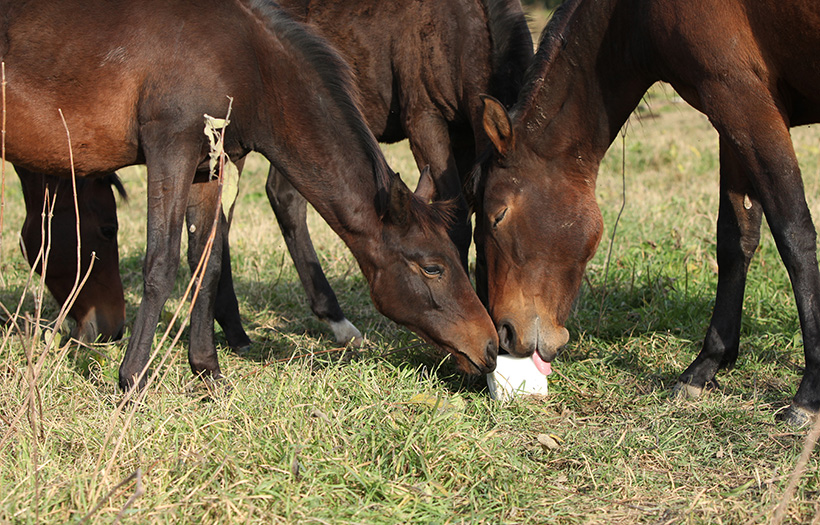Feeding Salt to Horses

We normally think of salt more as a warm weather requirement. Horses do require about 1-2 ounces of salt per day to provide help meet their requirement for sodium and chloride. This requirement can increase to 4-6 ounces of salt per day in hot climates or under exercise where losses in sweat increase greatly. Inadequate salt in the diet can result in abnormal eating behavior such as licking or chewing objects which have salt on them (fork handles etc.) or licking/eating dirt. Water intake may also decrease, increasing the risk of impaction colic. In more extreme cases, horses will stop eating and may experience muscle incoordination.
Cold weather salt intake is sometimes overlooked. Horses do not lick salt blocks as readily as some other specie even when the salt block is a comfortable temperature. During cold weather, outdoor salt blocks become even less inviting! Would you lick something that is freezing cold?
A good option to maintain year around salt intake is to offer loose salt available free choice, either in stalls or in a covered mineral feeder. Salt intake from loose salt has been observed to be higher than from salt blocks due to the ease of consumption. When purchasing loose salt, ensure that you are selecting salt that is intended for animal consumption (NaCl, iodized table salt, plain white salt), and not a mineral salt blend (red salt), or salt that is intended for de-icing.
If horses are salt starved, it may be a good idea to limit the amount of salt put out for them until they have adjusted their intake. It is essential that fresh clean water at an appropriate temperature be available at all times as well.
Commercial feeds normally contain 0.5-1.0% salt, so horses on this type of feed will typically consume less free choice salt than horses not receiving salt in their feed. They may still benefit from having loose salt available free choice. A salt block is better than not having any salt available free choice, but may not be as effective in maintaining salt intake in cold weather or when high intakes are required in hot weather.
Providing salt free choice is a good management tool that can help your horse eat and drink well all year long!
